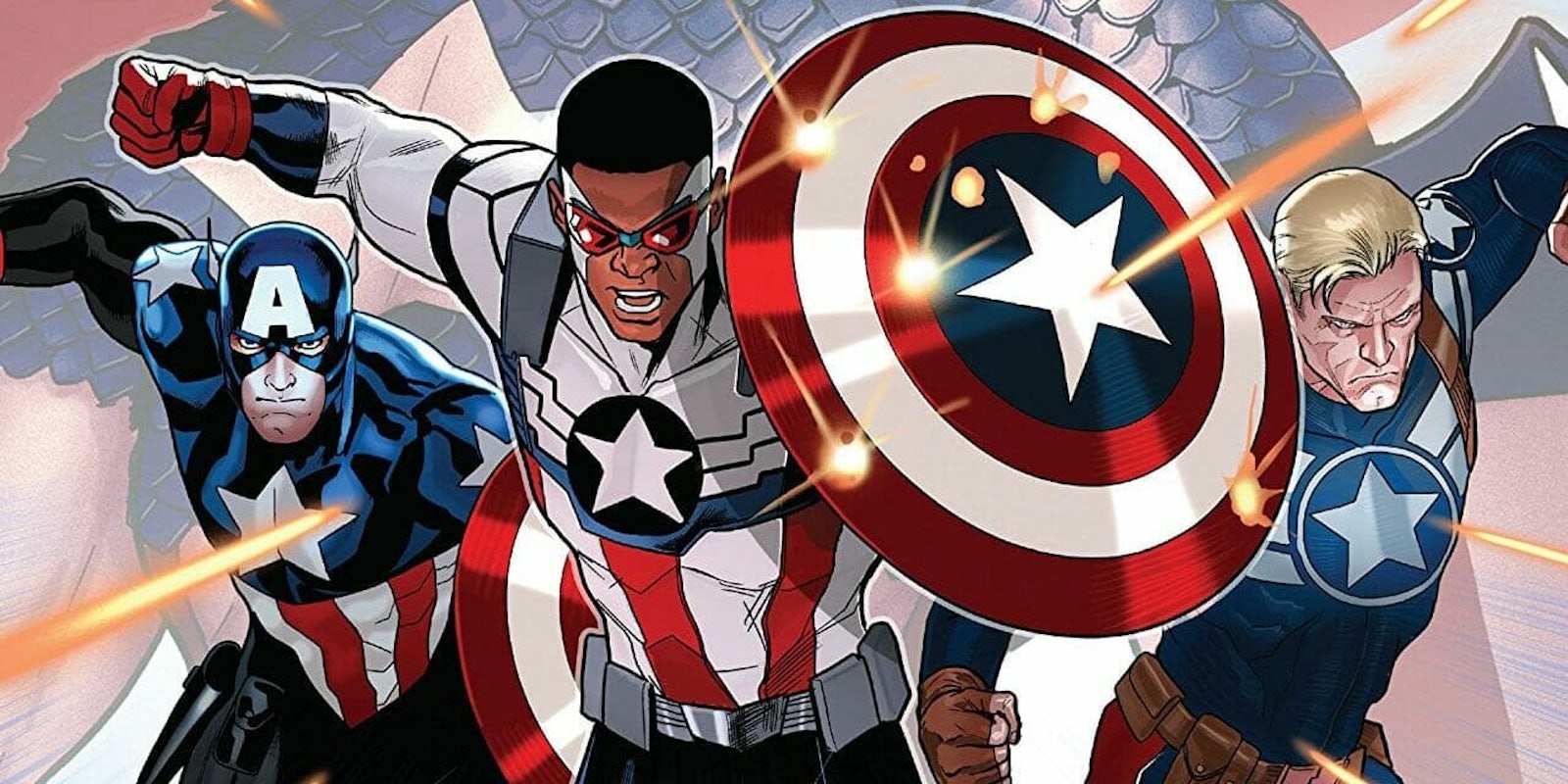Should superhero comics be political? This rather stupid argument has been going round in circles for decades, never resolved by the obvious fact that yes, some superheroes are very political while others are not. And thanks to Marvel Editor-in-Chief C.B. Cebulski, it’s time for another round of debate.
The topic came up during a Q&A panel at TerrifiCon in Connecticut, recorded by the podcast Blogtalkradio. Speaking alongside writers Nick Spencer (of Hydra Captain America fame) and Charles Soule (best known for his work on Star Wars comics), he answered a question about Marvel’s editorial attitude to political commentary. Highlighting Black Panther‘s anti-colonial themes, the audience member asked Cebulski what messages Marvel wants to send in this day and age. Here’s how Cebulski responded:
“Marvel has always been, as Stan [Lee] always said, ‘the world outside our window.’ It’s the reflection of the modern times that we live in. Marvel has never shied away from that, around what happened with 9/11 or what we were doing with Secret Empire.”
Secret Empire was last year’s controversial storyline about a fascistic Hydra takeover in America. Cebulski mentioned that a couple of upcoming comics would include allegories to current events, but emphasized the idea that Marvel stories should primarily be about entertainment.
“One of the things I want to make sure is when we do tell these stories—I don’t know how to put this in the right way—they still have to be entertainment. If we want to see the real world, we can turn on CNN, we can turn on the TV, we can pick up a newspaper and see what’s going on there. And yes, it’s our responsibility as a comic book publisher, especially Marvel, given the history that we have, to reflect those times, but they still have to be fun.
We can’t get too deep into the politics. And the characters can take sides, choose sides, turn evil, turn back to good, but they still have to entertain.”
This seems like a pretty obvious answer, given that no one wants every comic to be a super-serious commentary on current events. At the same time, Cebulski is maintaining an equivocal stance that in the long term, isn’t working well for Marvel or the comics industry in general. Statements like “we can’t get too deep into the politics” are meant to reassure fans who think superhero comics are getting “too political,” a complaint that invariably refers to progressive content or diverse casting. All too often, “too political” is code for, “I wish Kamala Khan and Riri Williams didn’t exist.”
Look at it this way. Some Marvel characters, like Captain America or the X-Men, are inherently political. Some readers might prefer an X-Men comic where the heroes just kick ass with no deeper themes, but if that X-Men team consists of straight, white characters, then that’s a political statement in itself. In an attempt to cater to the “superheroes shouldn’t be political” crowd, you’ve created a comic that whitewashes the X-Men’s role as an allegory for oppression. Meanwhile, something like Squirrel Girl might be labeled as SJW propaganda because it’s a female-led comic with a diverse cast, but it’s actually lighthearted entertainment with minimal political themes.
Basically, Marvel is trapped by trying to be all things to all people. The publisher is belatedly making headway by diversifying its creative lineup, but at the same time, Cebulski doesn’t want to alienate conservative fans. And very noticeably, Marvel (and DC, and Image, and most major comics publishers) still hasn’t made a public statement against Comicsgate. As long as Cebulski continues to draw a line between “escapist” and “political” comics (as if they can’t be the same thing), he’ll face criticism from fans who see superhero comics as a way to explore social issues through an allegorical lens.


